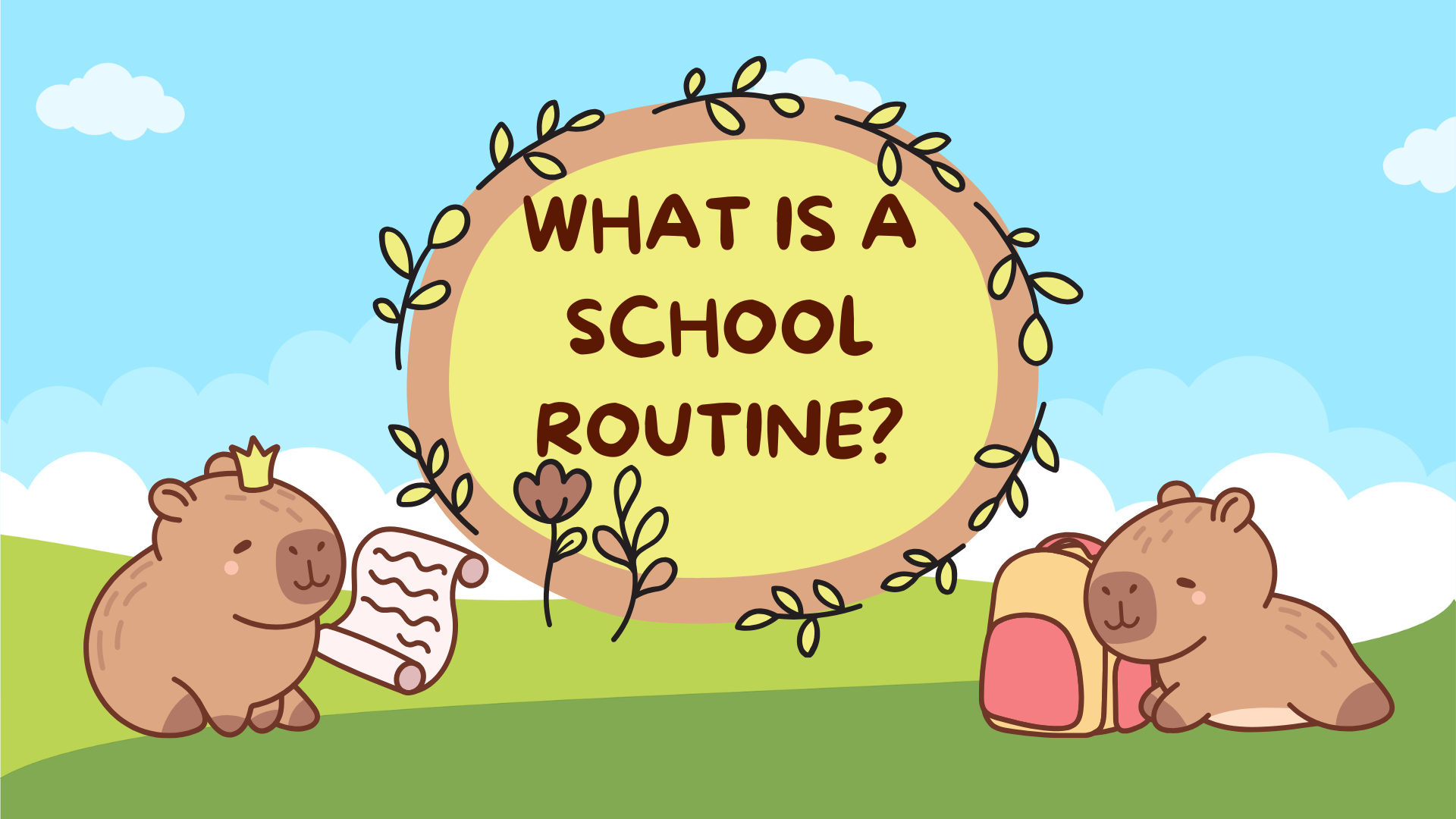
Importance of Discipline and Punctuality for School Students
Discipline and punctuality are core values everyone needs to imbibe in order to make the best use of every minute. The practice begins right from the time a student gets admitted to pre-school as they have to enter right before the opening hours.
A time to wake up, a time to dress up, a time to reach school, a time for play are all examples of scheduling tasks around our lives. Having a routine and maintaining it from a young age helps students carry these values in their professional fields.
What is discipline and punctuality?
Discipline is a practice of training ourselves to follow rules that are necessary to maintain good habits. For example, eating, sleeping, and waking up at the same time every day sends signals to our body to habituate it with a set pattern.
For students, discipline would also add reaching school on time, packaging bags according to timetable, and carrying essentials like lunchbox, pencil box, water bottle, etc. After returning home their nap time and play time should also have a schedule, before they sit with revising what was taught in school.
Discipline and punctuality are associated to each other, but are not the same thing. Punctuality ensures timeliness and goes hand in hand with disciplinary behavior. Being punctual means starting a task at the exact time you had promised to begin or reaching a place as planned.
Schools often punish students who reach later than opening hours. Many are made to stand outside and some are often asked to return back home. Such punishments make them realize that importance of attendance, discipline, and punctuality.
Importance of discipline and punctuality
Here are some reasons that make discipline and punctuality necessary for academic growth and overall development of students:
1. Making a routine
The first step of discipline is looking at every activity as a task. Activities like sleeping, eating, studying are not habits but tasks that have time allocated at regular intervals to fulfill each. Just like every subject taught in class has a fixed time period the entire week must be planned around a routine. Routine helps a student schedule their entire day much like timetable they get for a day at school.
2. Practicing time management
Once you associate each activity with a certain time, you need to follow how you manage completing each task within a certain timeframe. Here is where self-discipline plays a crucial role for precision and timeliness. Not following a timetable often leads to procrastination and wasted hours of unproductivity.
The first routine you create might need changes after you test it for 7 to 21 days. Feel free to incorporate such changes to follow a doable schedule that helps you maintain discipline.
3. Better academic performance
A consistent study routine creates a repetitive pattern that wires our brains to absorb knowledge during the same time period. Once students return home from school, they eat, take a nap, play and sit with studies. This healthy pattern lets them rest, relax, and sit with a fresh mind to understand complex concepts across different subjects.
A consistent pattern triggers self-discipline, prioritizes studies, and enhances interests towards subject matters. Once they stick to a routine, it becomes easier to read, write, and revise, reducing the chances of preparing before exams. Regular learning reduces stress and anxiety before examinations and increases chances of academic performance. When study becomes a part of their daily routine, it doesn’t become exceptional and unnerving right before exam time.
4. Having a healthy routine
Discipline and punctuality aren’t only about studies but they are lifelong skills that we need in every sphere or life. A healthy routine begins with proper eating and sleeping time. It further transcends into reaching school on time, studying and revising during similar hours every day, and so on.
A healthy routine shapes our circadian rhythm also known as body block, which regulates bodily functions based on daily routines. Maintaining a schedule everyday regulates our hormones, body temperature, and synchronizes with our external environment.
5. Reduces distraction
A disciplined person has a stipulated time for every task he has to do throughout the day. It automatically creates an awareness that reminds them about the following task while they have one at hand. They complete the task at hand within the time allocated so that they can move onto the next as priorly assigned.
The process reduces distraction and procrastination because there is always one more thing to do be done within a timeframe. Creating to-do list for a day with approximate time to carry out each task creates a repetitive pattern that ensures completion.
6. Complete focus
Multi-tasking is considered a virtue especially for students who have to study several subjects to pass each standard. But jumping from one subject to another or practicing multiple subjects at one time can confuse the young minds.
Every class in school follows a routine broken across multiple subjects throughout a day. Similarly, students need to create a study routine at home to have complete focus on one subject at one time. Focusing on one subject or task at a time helps students put complete mental effort towards achieving one goal.
7. Respect
Punctuality is a form of respect that reflects how someone values their time and the time they promise to others. For example, reaching school on time respects the institution, the members, and reflects a student’s zeal towards their education.
When students grow up and go into professional fields, they will carry the same value at their workplace. They will respect time when expected to reach office within a certain hour or attend meeting as priorly discussed. These are tiny habits that speak a lot about one’s character.
8. Prepares for career
When timeliness becomes priority for a person, they become an asset for any institution they associate with. Every form of work comes with a deadline and the ones who maintain it regularly are valuable resources to a company. People don’t just take you seriously, they find your reliable and responsible because they know you will deliver as expected. Such a support system shapes businesses because efficiency and timeliness matter to every organization.
How to become disciplined and punctual?
Schools leads by example in terms of disciplinary behavior and punctuality. Just as students are expected to be on time, so are teachers and staff members who attend regular school day. Reaching school on time are the first compulsions students have to encounter when they are growing up to lead disciplined lives. Initially, parents drop them off and it becomes their responsibility, and as they grow older some travel alone as well.
Regular practice of attending school, studying different subjects as per timetable, and have recess at the same time every day shapes their idea of time management. Using a watch to track time is a healthy habit school going kids can adopt to analyze their schedules.
During their formative years, how students spend their time is a responsibility that belongs to parents, teachers and guardians. They not only lead by example but also by explaining them the importance of time management and habits to make the process easier.







